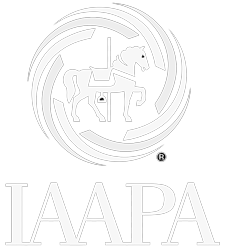Back
Support for Businesses as a Result of COVID-19
 With the Chancellor of the Exchequer announcing financial support and rescue packages for SME’s amongst the COVID-19 outbreak, the media has become saturated with conflicting and confusing information. Our business development team have been pouring through many news articles and governmental websites to consolidate the facts. This is what we think you need to know:
With the Chancellor of the Exchequer announcing financial support and rescue packages for SME’s amongst the COVID-19 outbreak, the media has become saturated with conflicting and confusing information. Our business development team have been pouring through many news articles and governmental websites to consolidate the facts. This is what we think you need to know:1) Coronavirus Business Interruption Loan Scheme (CBILS)
The most useful and probably the highest value support is the Coronavirus Business Interruption Loan Scheme (CBILS). This scheme is open to businesses to enable them to access bank lending and overdrafts. The Banks will have increased confidence in lending as the government is underwriting 80% of the loan value. This scheme will support lending up to £5 million and the first 6 months of these loans interest payments will be covered by the government and therefore interest free to businesses. CBILS is a short-term emergency loan from the government with the intent of enabling businesses to off-set overhead costings such as rent and staffing.
This scheme launches on the 23rd March 2020 and your first step would be to see if your bank is on the list of accredited lenders https://www.british-business-bank.co.uk/ourpartners/coronavirus-business-interruption-loan-scheme-cbils/accredited-lenders/
If you do apply for funding through this route, be prepared to supply, in addition to the normal end of year accounts, additional accounting information, such as cash flow and forecasts may be required.
2) SSP Refund
With such a high proportion of the UK’s working population set to become infected with COVID-19, and the governments recent changes to SSP qualification, enabling employees to be paid SSP from day one of their illness, placing a further burden on already overstretched employers.
The government has announced that for businesses with less than 250 employees, SSP will be reclaimable in full for up to 14 days per employee.
It is important to note that in this specific case, qualification for claiming this refund is based not only on officially diagnosed cases of COVID-19, but also for those unable to work due to self-imposed isolation.
It is also worth noting that SSP will increase from the 6th April from £94.25 to £95.85.
3) Business Rate Relief and Grants
There are two different packages being offered by the government depending on the size of your business.
- If you currently pay no business rates because of the Small Business Rate Relief programme, then you should be eligible for a non-repayable £10,000 cash grant. If this applies to you then you do not need to do anything, as your local authority will contact you if you qualify.
- The business rates retail discount in England is being extended to 100% for the 2020/2021 tax year for properties below £51,000 rateable value, whilst this previously related only to retailers, in these emergency measures it has been extended to leisure and hospitality businesses. £25,000 cash grants will be available to retail, hospitality and leisure businesses with a rateable value of £15,000-£51,000 and operating from a smaller premises (The term ‘Smaller Premises’ is yet to be defined, as far as we are aware)
4) Support for Businesses Paying Tax
All businesses and self-employed people in financial distress, and with outstanding tax liabilities, may be eligible to receive support with their tax affairs through HMRC’s Time To Pay service. These arrangements are agreed on a case-by-case basis and are tailored to individual circumstances and liabilities.
If you are concerned about being able to pay your tax due to COVID-19, call HMRC’s dedicated helpline on 0800 0159 559.
5) Insurance
Businesses that have cover for both pandemics and government-ordered closure should be covered, as the government and insurance industry confirmed on 17 March 2020 that advice to avoid pubs, theatres etc is sufficient to make a claim.
Insurance policies differ significantly, so businesses are encouraged to check the terms and conditions of their specific policy and contact their providers. Most businesses are unlikely to be covered, as standard business interruption insurance policies are dependent on damage to property and will exclude pandemics.
Back



